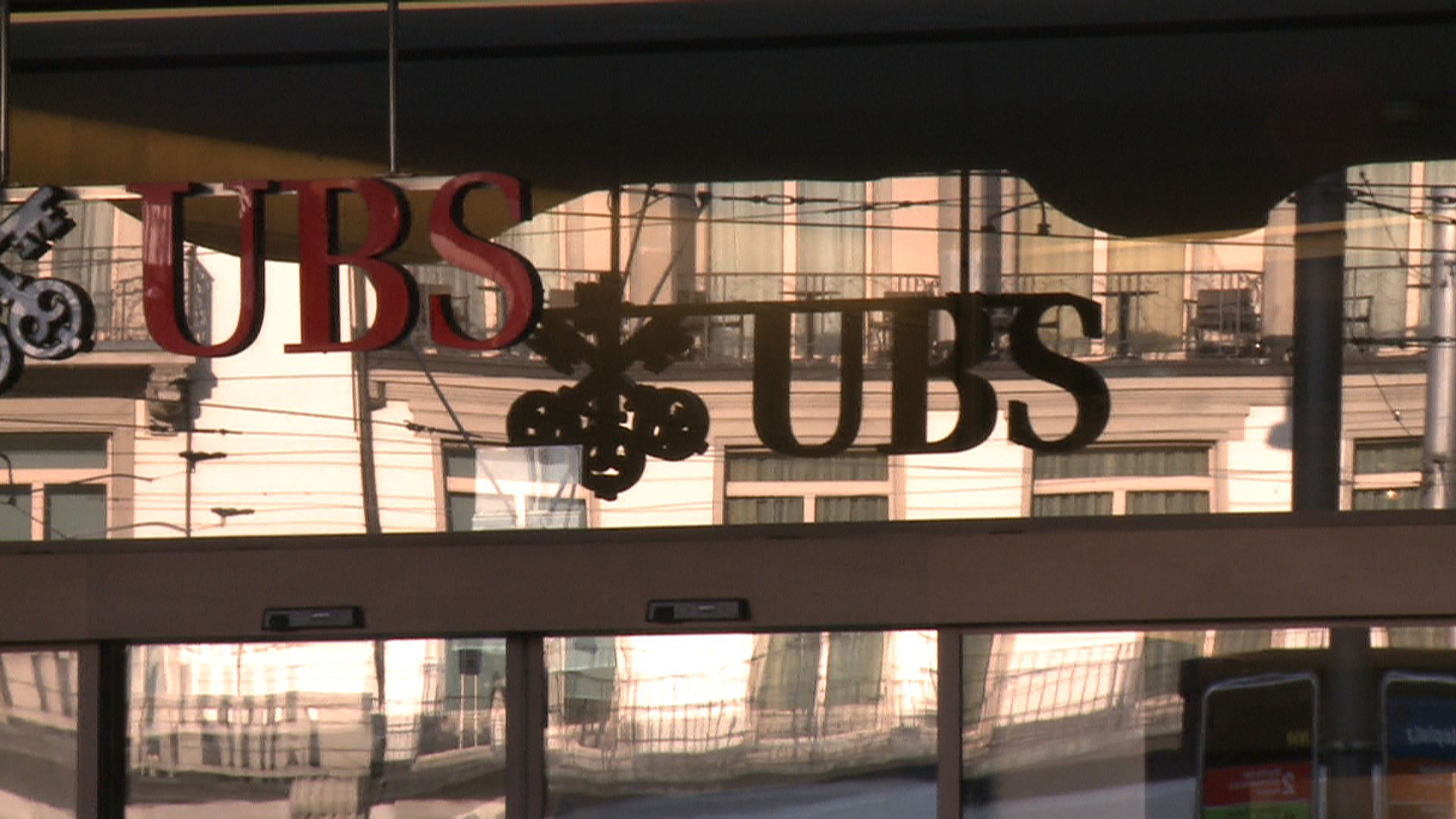Unions alarmed at massive UBS jobs cull

Many of the 10,000 job cuts announced by UBS on Tuesday are unnecessary, according to trade unions that fear Switzerland’s largest bank could lose its “Swiss Quality” label by dumping Zurich-based staff.
Most of the redundancies will be felt in London, and to a lesser degree in New York, but some 2,500 jobs will go in Switzerland – more than 10 per cent of the total workforce in the bank’s home country.
The Swiss Bank Employees Association gave a cautious welcome to news that UBS is slimming down its risk-laden investment banking operations. But the release of some Swiss-based IT workers in the last few days has set alarm bells ringing.
“If UBS reduces IT services in Switzerland too much, or moves them abroad, then risk to the bank would increase and specific, vital know-how would be lost,” the association’s secretary-general Denise Chervet told swissinfo.ch.
A loss of domestic talent could erode the bank’s reputation of being based on Swiss quality, the association added in a statement. It urged UBS to consider other options, such as shortening working hours, reducing overtime and granting unpaid holidays.
“[We] call for a more sustainable and long-term human resources policy, not just from UBS, but all banks,” the statement read, adding that UBS owed a debt to the Swiss nation after it was bailed out during the financial crisis.
Social responsibility
UBS said the job cuts would accelerate an ongoing process to reduce risk, meet new regulatory requirements and make the bank more competitive in future.
But the cull still sent some shock waves through Swiss political circles. “I regret the job cuts. It is never good news for the economy if restructuring is necessary,” Economics Minister Johann Schneider-Ammann told Swiss radio.
“The financial sector has been under pressure and the companies have no choice but to look ahead. It is positive that they are looking for a way out, but the consequences are less good news.”
The Swiss Association of Office Workers, that counts bank staff among its members, expressed concern that it had not been consulted about the job cuts.
“Early retirement schemes and changing some full time positions to part time would significantly reduce the number of redundancies,” the association said in a statement. “It is UBS’s responsibility to conduct the planned job cuts in as socially responsible a manner as possible and to include external partners in the process.”
Staff support
UBS chief executive Sergio Ermotti said the bank was well aware that reducing headcount from 64,000 to 54,000 would be painful for many.
“Making this decision to reduce staff numbers was difficult, and particularly so because we are in a business that is all about people,” he said on Tuesday. “We will take every measure we can to mitigate the overall effect of these reductions.”
“We will ensure that every affected employee will be supported and treated with care,” he added.
UBS offers employee assistance programmes for workers that have been made redundant, that offer re-training in new skills, counseling and help in applying for other jobs.
One former UBS employee, who did not want to be named, praised the system for helping to soften the blow after being told that he was going to be made redundant last year. After being coached for four months, he then received a three month notice period on full pay before being finally released in March with a severance package.
“I feel extremely lucky that there was such a humane system in place when I left,” the IT specialist, who had worked at the bank for 11 years, told swissinfo.ch.
Rough treatment
However, he has since found that IT jobs in the financial sector are scarce, and still finds himself unemployed despite being prepared to take a drop in salary.
“Jobs are thin on the ground at the moment, even for someone with extensive experience,” he said. “I have been told that banks are contracting a lot of IT people from Asia on short term projects.”
There were reports filtering in on social media and the press that some staff had not been treated so gently in the latest round of cuts.
According to some messages, several London traders found out on Tuesday morning that they had been made redundant when their security passes failed to let them into their office.
“If that is really the case then it is scandalous,” Denise Chervet told swissinfo.ch.
Geographical distribution of full-time equivalent posts at UBS.
1998: 48,074 globally, of which 32,710 were in Switzerland, 4,801 in the Americas and 2,881 in the Asia-Pacific region (APAC).
2006: 78,140 global, 27,018 Switzerland, 30,819 Americas, 7,616 APAC.
June 30 2012: 63,520 global, 22,517 Switzerland, 22,582 Americas, 7,588 APAC.
On Tuesday, UBS posted a SFr2.17 billion ($2.31 billion) loss for the third quarter of 2012.
This compared to a SFr1.02 billion profit in the equivalent three months last year.
The 2012 results were hit by a SFr3.1 billion impairment charge related to the investment bank restructuring. UBS also had to take a SFr863 million accounting hit on the theoretical cost of buying back its own debt.
The bank’s core wealth management business saw net new money inflows of SFr7.7 billion, while wealth management Americas attracted $4.8 billion.
At the same time, the bank announced an acceleration of its cost cutting program that would result in savings of SFr3.4 billion by 2015.
The bank had announced a SFr2 billion cost savings package last autumn.

In compliance with the JTI standards
More: SWI swissinfo.ch certified by the Journalism Trust Initiative





You can find an overview of ongoing debates with our journalists here. Please join us!
If you want to start a conversation about a topic raised in this article or want to report factual errors, email us at english@swissinfo.ch.